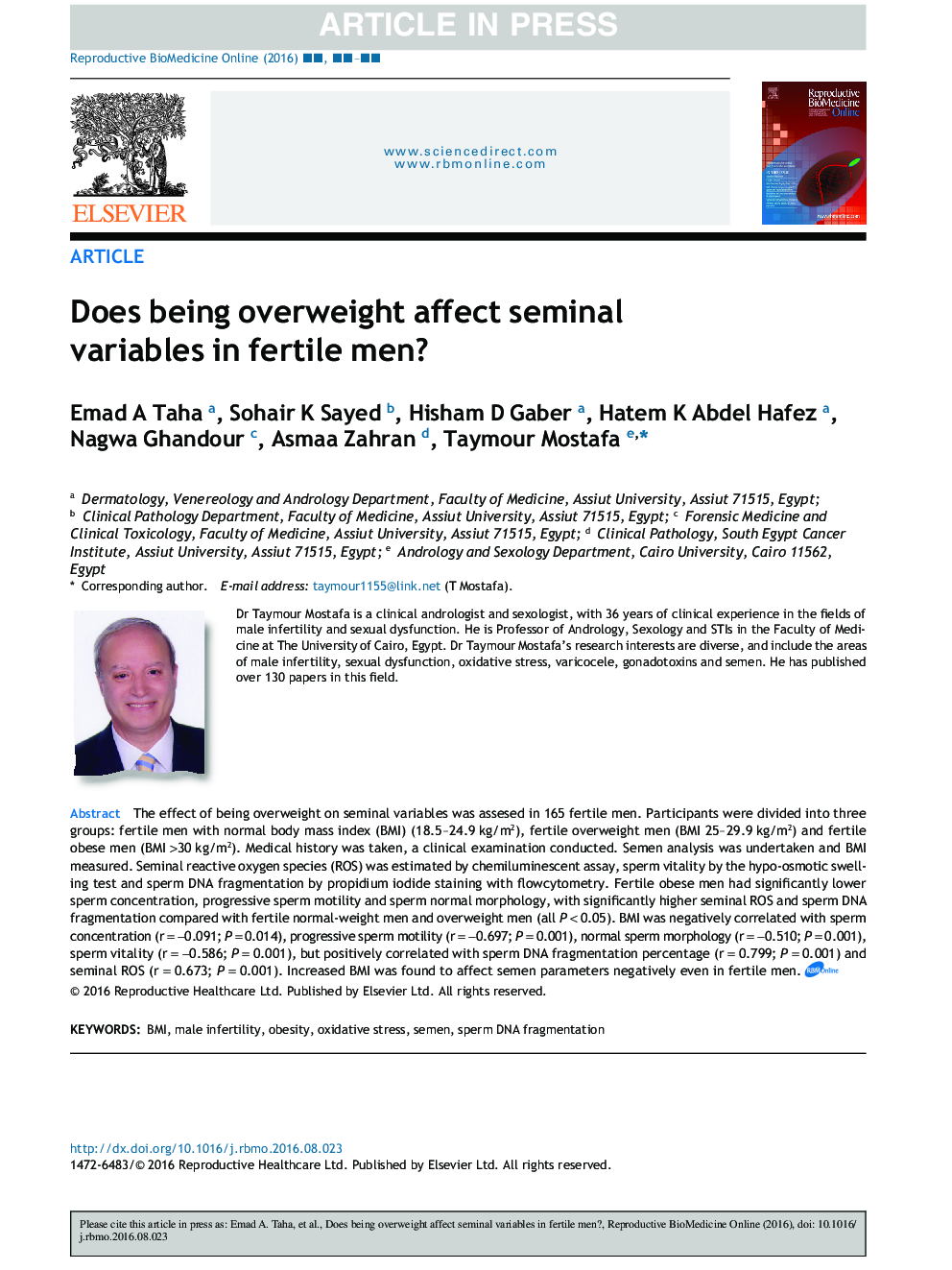| Article ID | Journal | Published Year | Pages | File Type |
|---|---|---|---|---|
| 5696829 | Reproductive BioMedicine Online | 2016 | 6 Pages |
Abstract
The effect of being overweight on seminal variables was assesed in 165 fertile men. Participants were divided into three groups: fertile men with normal body mass index (BMI) (18.5-24.9âkg/m2), fertile overweight men (BMI 25-29.9âkg/m2) and fertile obese men (BMI >30âkg/m2). Medical history was taken, a clinical examination conducted. Semen analysis was undertaken and BMI measured. Seminal reactive oxygen species (ROS) was estimated by chemiluminescent assay, sperm vitality by the hypo-osmotic swelling test and sperm DNA fragmentation by propidium iodide staining with flowcytometry. Fertile obese men had significantly lower sperm concentration, progressive sperm motility and sperm normal morphology, with significantly higher seminal ROS and sperm DNA fragmentation compared with fertile normal-weight men and overweight men (all P < 0.05). BMI was negatively correlated with sperm concentration (r = â0.091; P = 0.014), progressive sperm motility (r = â0.697; P = 0.001), normal sperm morphology (r = â0.510; P = 0.001), sperm vitality (r = â0.586; P = 0.001), but positively correlated with sperm DNA fragmentation percentage (r = 0.799; P = 0.001) and seminal ROS (r = 0.673; P = 0.001). Increased BMI was found to affect semen parameters negatively even in fertile men.
Related Topics
Health Sciences
Medicine and Dentistry
Obstetrics, Gynecology and Women's Health
Authors
Emad A. Taha, Sohair K. Sayed, Hisham D. Gaber, Hatem K. Abdel Hafez, Nagwa Ghandour, Asmaa Zahran, Taymour Mostafa,
